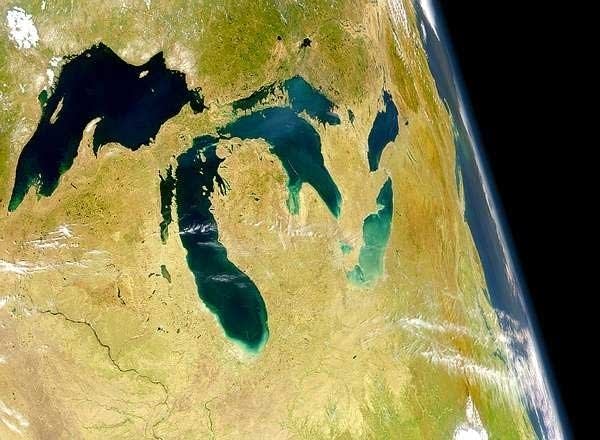CDC releases Great Lakes pollution report citing health problems
Go Deeper.
Create an account or log in to save stories.
Like this?
Thanks for liking this story! We have added it to a list of your favorite stories.

(AP) - Under pressure from Congress, the government released a controversial draft report Wednesday that suggests pollution is causing health problems in some parts of the Great Lakes states, including cancer and premature births.
The document was produced by scientists at the Centers for Disease Control and Prevention. But CDC administrators quickly distanced themselves from the work, saying that some of the science is weak, and that they released it after accusations of a coverup.
CDC officials also said they have asked an independent scientific advisory organization -- the Institute of Medicine -- to review the drafts and give its own assessment of the work's quality.
"We're sending it to the best scientific body in the country. They can tell us whether we were justified or not" in having misgivings about the science, said Dr. Henry Falk, who oversees CDC research on environmental health hazards.
Turn Up Your Support
MPR News helps you turn down the noise and build shared understanding. Turn up your support for this public resource and keep trusted journalism accessible to all.
"It is disappointing that it took a congressional investigation and intense media coverage to prompt the release of a scientific report that has been five years in the making."
It's unusual -- but not unheard of -- for the institute to review CDC research. It is expected to finish its assessment by the end of June, CDC officials said.
The CDC had been under fire from some congressmen for withholding the documents and for reassigning the scientist in charge of the project, Christopher De Rosa, to lesser duties.
Some lawmakers said they believe De Rosa was reassigned because he pushed for release of important information.
The report compiles previously available information on measurements of pollution and on health measures like infant mortality and cancer death rates. The CDC on Wednesday released drafts of the report from 2004 and 2007.
CDC bosses are especially troubled by one table from a 2007 draft that shows high rates of cancer in about two dozen areas, and greater rates of premature births in four.
They said there are multiple problems with that. One is the health measures are drawn from county statistics, but the report is meant to look at pollution areas that are sometimes larger or smaller than a county.
It would take new research focused on pollution sources to show a cause-effect relationship, they argue.
Yet another revision of the report is to be released later this month, Falk said.
The CDC's handling of the matter "raises grave questions about the integrity of scientific research" at the agency, "as well as the treatment of its scientists," U.S. Reps. John Dingell and Bart Stupak, both Michigan Democrats, wrote in a letter last month to CDC Director Dr. Julie Gerberding.
The CDC's Agency for Toxic Substances and Disease Registry conducted the study. It was requested in 2001 by the International Joint Commission, an independent panel that advises U.S. and Canadian officials on Great Lakes water quality issues.
Parts of the drafts have already been available. The Center for Public Integrity, a nonprofit journalism organization in Washington, D.C., earlier published what it said were excerpts.
Dingell and Stupak last month asked the CDC for records involving the decision to withhold the report. They requested copies of communications between De Rosa, the scientist who led the study, and his superiors -- Gerberding and Dr. Howard Frumkin, director of the toxics agency.
"It is disappointing that it took a congressional investigation and intense media coverage to prompt the release of a scientific report that has been five years in the making," Stupak said in a statement.
He added that there are still unanswered questions, and a congressional review will continue into "the circumstances behind CDC's suppression of this report and any possible retaliation against the whistleblower who worked to bring it to light."
(Copyright 2008 by The Associated Press. All Rights Reserved.)
Dear reader,
Political debates with family or friends can get heated. But what if there was a way to handle them better?
You can learn how to have civil political conversations with our new e-book!
Download our free e-book, Talking Sense: Have Hard Political Conversations, Better, and learn how to talk without the tension.





